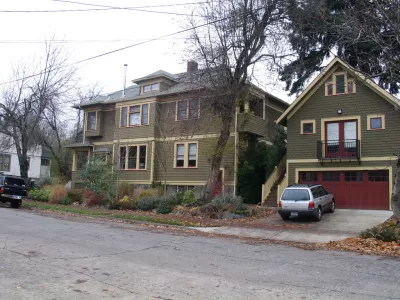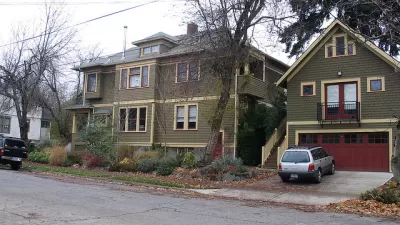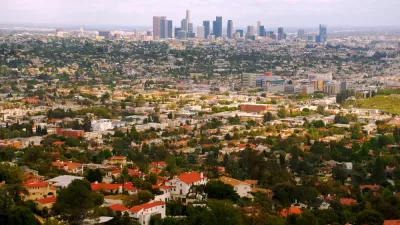Washington, D.C. approved a long-awaited new zoning code in January. Greater Greater Washington digs into one of the new code's more substantive changes: more permissive regulations for accessory dwelling units.

Emily Brown reports on the provision of Washington's D.C.'s new zoning code, that allows homeowners to build accessory dwelling units (ADUs) without special permission. "Allowing ADUs to go up more freely is one of the biggest changes of the new zoning code," according to Brown.
Apartments have always been relatively easy for homeowners to add—consider the classic DC "English Basement." Under the old zoning code they were allowed with a special exception, but now they are allowed by right in residential neighborhoods.
Brown details the definition of ADUs according to the new code, and other considerations, such as rental regulations and financial feasibility, for homeowners planning to add ADUs to properties.
Back in January, Planetizen picked up the news about the new zoning code from Martin Austermuhle at WAMU. David Alpert also provided detailed coverage of the approval for Greater Greater Washington.
FULL STORY: Want to add a small apartment to your house in DC? That's allowed now.

Planetizen Federal Action Tracker
A weekly monitor of how Trump’s orders and actions are impacting planners and planning in America.

Maui's Vacation Rental Debate Turns Ugly
Verbal attacks, misinformation campaigns and fistfights plague a high-stakes debate to convert thousands of vacation rentals into long-term housing.

San Francisco Suspends Traffic Calming Amidst Record Deaths
Citing “a challenging fiscal landscape,” the city will cease the program on the heels of 42 traffic deaths, including 24 pedestrians.

Defunct Pittsburgh Power Plant to Become Residential Tower
A decommissioned steam heat plant will be redeveloped into almost 100 affordable housing units.

Trump Prompts Restructuring of Transportation Research Board in “Unprecedented Overreach”
The TRB has eliminated more than half of its committees including those focused on climate, equity, and cities.

Amtrak Rolls Out New Orleans to Alabama “Mardi Gras” Train
The new service will operate morning and evening departures between Mobile and New Orleans.
Urban Design for Planners 1: Software Tools
This six-course series explores essential urban design concepts using open source software and equips planners with the tools they need to participate fully in the urban design process.
Planning for Universal Design
Learn the tools for implementing Universal Design in planning regulations.
Heyer Gruel & Associates PA
JM Goldson LLC
Custer County Colorado
City of Camden Redevelopment Agency
City of Astoria
Transportation Research & Education Center (TREC) at Portland State University
Jefferson Parish Government
Camden Redevelopment Agency
City of Claremont





























